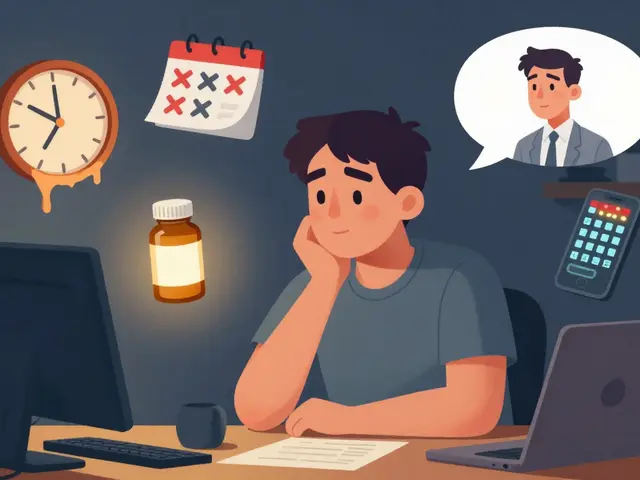Sleep patterns: simple fixes that actually work
Are you waking up tired or dozing off at odd times? Sleep patterns aren’t just about hours in bed — they’re about timing, routine, and small habits that add up. This guide gives plain, useful steps you can try tonight to get your sleep back on track.
What shapes your sleep pattern
Your body follows a circadian rhythm — a daily clock that tells you when to sleep and when to be awake. Light, meal times, caffeine, exercise, stress, and even medicines change that clock. Irregular bedtimes, late screens, or nighttime bathroom trips are common culprits. If you take meds like SSRIs (for example, sertraline/Zoloft) or drugs that affect urination, they can also shift sleep or cause nighttime waking.
Quick fixes to improve your sleep pattern
Start with a few practical moves. Try only what fits your life and keep it consistent for a week to test it.
Pick a wake time and stick to it. Even after a bad night, get up at the same time. That anchors your clock.
Cut evening bright light. Dim lights and lower screen brightness 60–90 minutes before bed. Blue-light filters on phones help but shutting off long scrolling is better.
Mind caffeine and alcohol. Skip caffeine after early afternoon. Alcohol may help you fall asleep but fragments the night.
Make a short wind-down routine. Read, stretch, or do 10 minutes of breathing. Keep it predictable so your brain learns the cue for sleep.
Nap smart. If you need one, keep it 20–30 minutes and not too late in the day.
Create a sleep-friendly room. Cool, quiet, and dark wins. Earplugs, blackout shades, or a fan can make a big difference fast.
Track results. Use a simple sleep diary or an app for a week: bedtime, wake time, naps, caffeine, and mood. That shows patterns you might miss.
When meds or health issues mess with sleep
Some prescriptions affect sleep. Antidepressants can cause insomnia or daytime sleepiness. Urinary problems or frequent nighttime urination (common with UTIs or meds like tamsulosin) disrupt sleep too. If a medicine seems to be the problem, don’t stop it — talk to your prescriber about timing, dose, or alternatives.
Also watch for signs of sleep disorders: loud snoring with gasps, falling asleep while driving, or more than a month of poor sleep that affects daytime focus. Those are reasons to see a clinician or a sleep specialist.
Try one or two changes at once, give them time, and track how you feel. Small, consistent shifts often beat drastic “fixes.” If simple steps don’t help, ask a healthcare provider — there are effective treatments and medicine options that can help without trading one problem for another.





